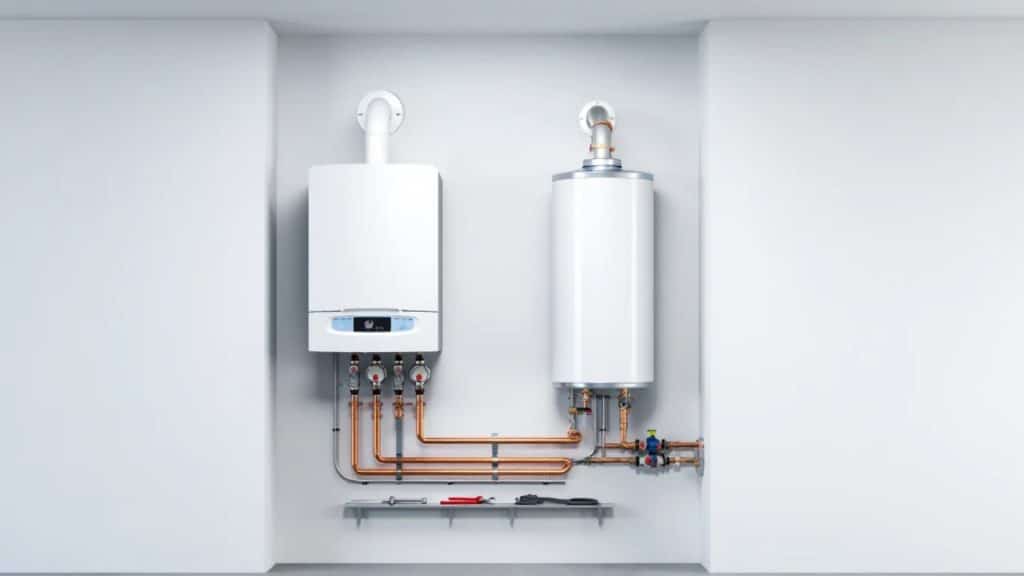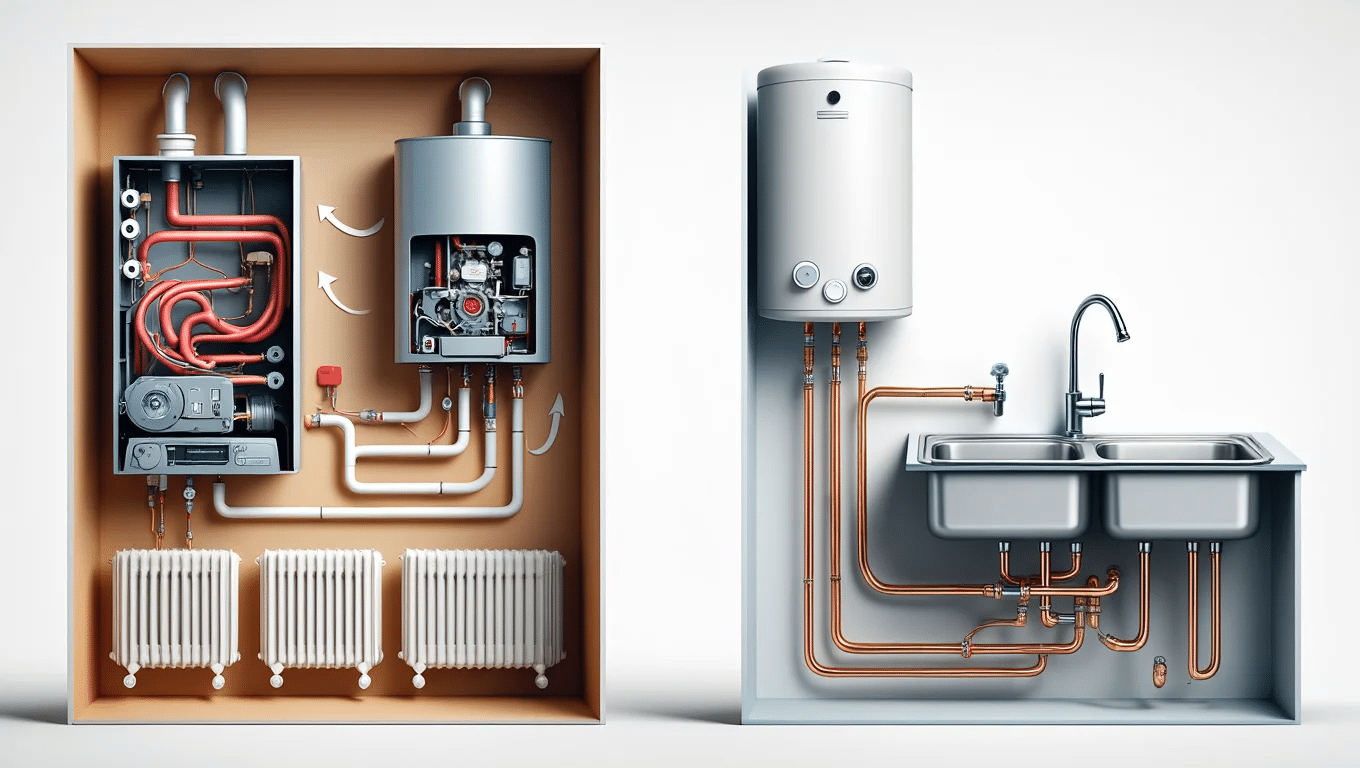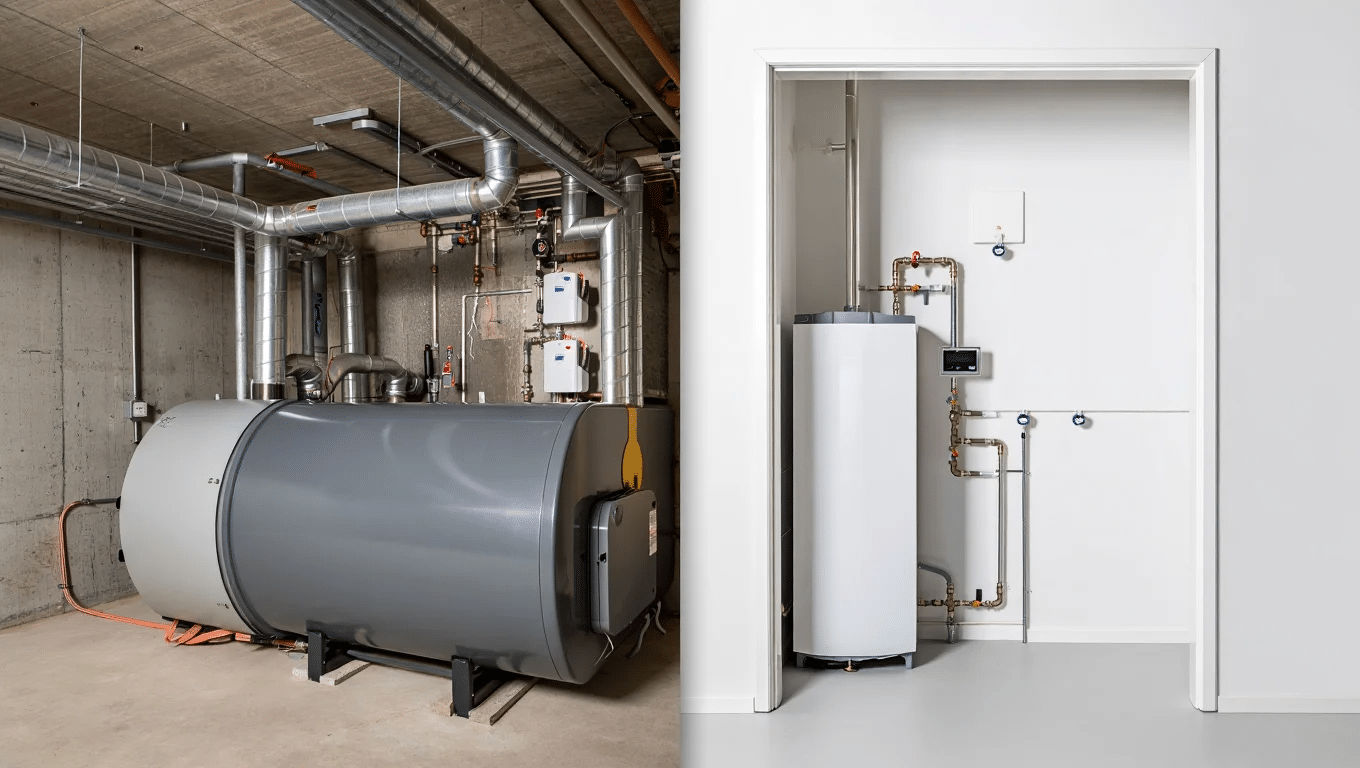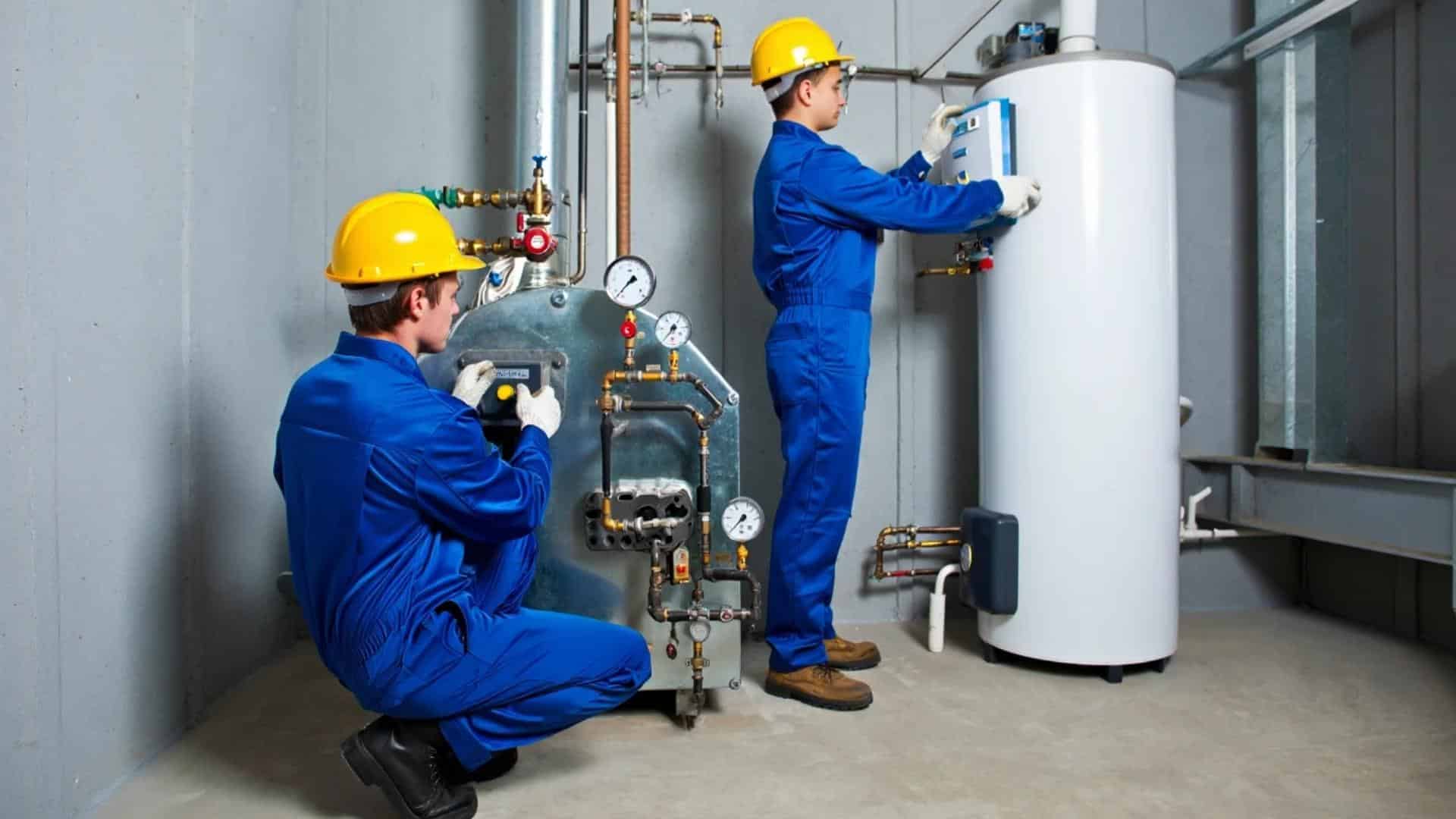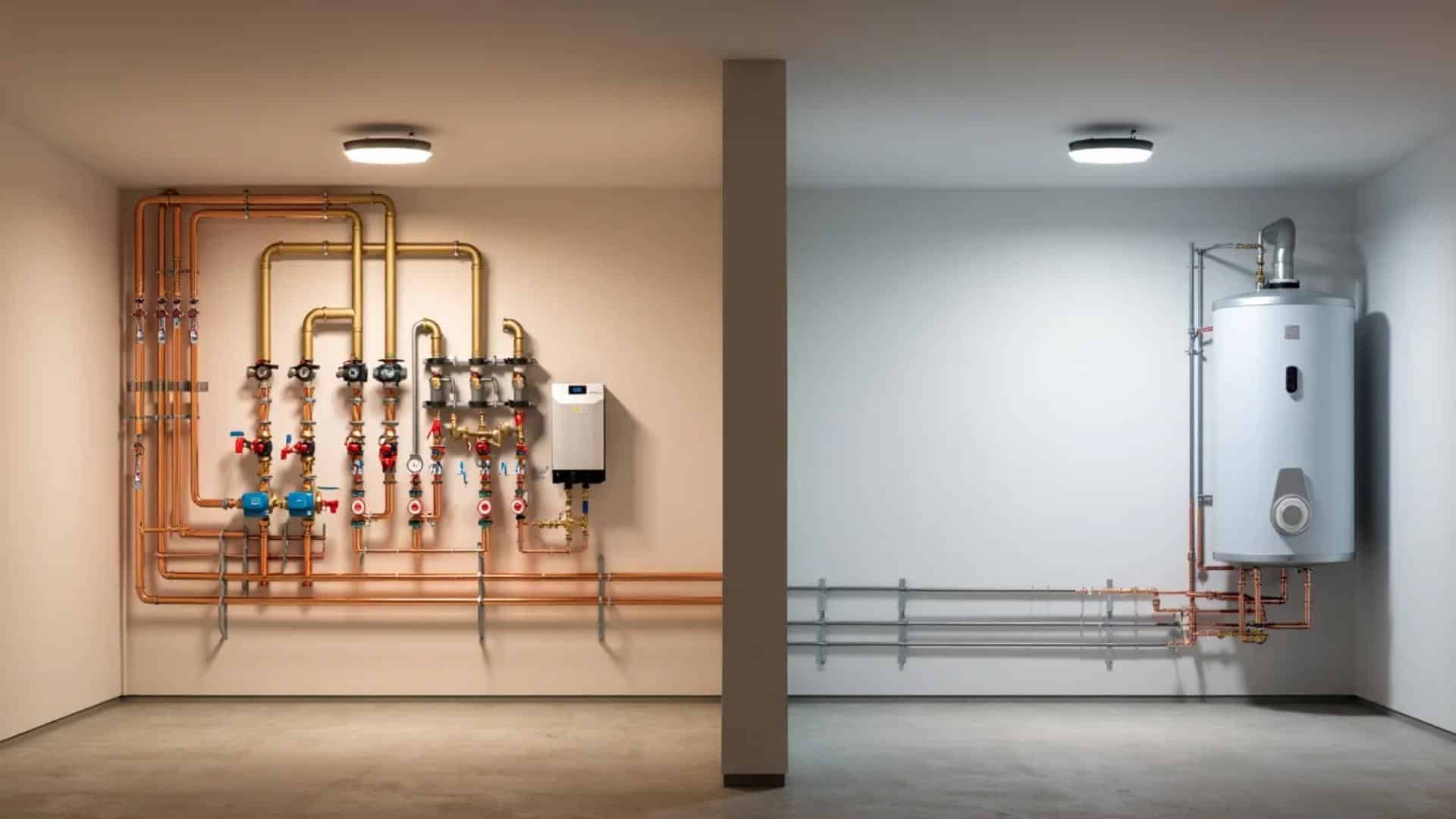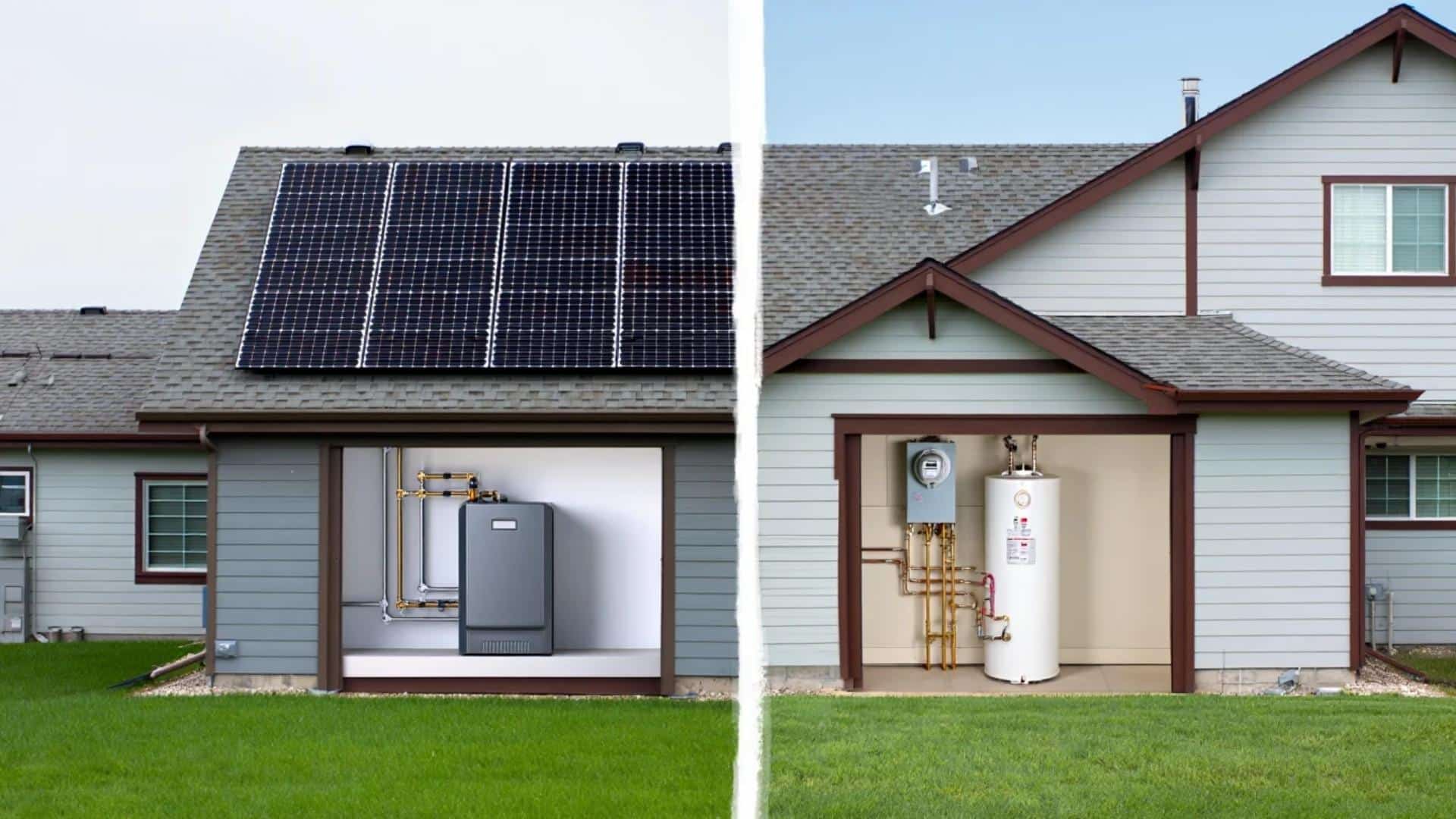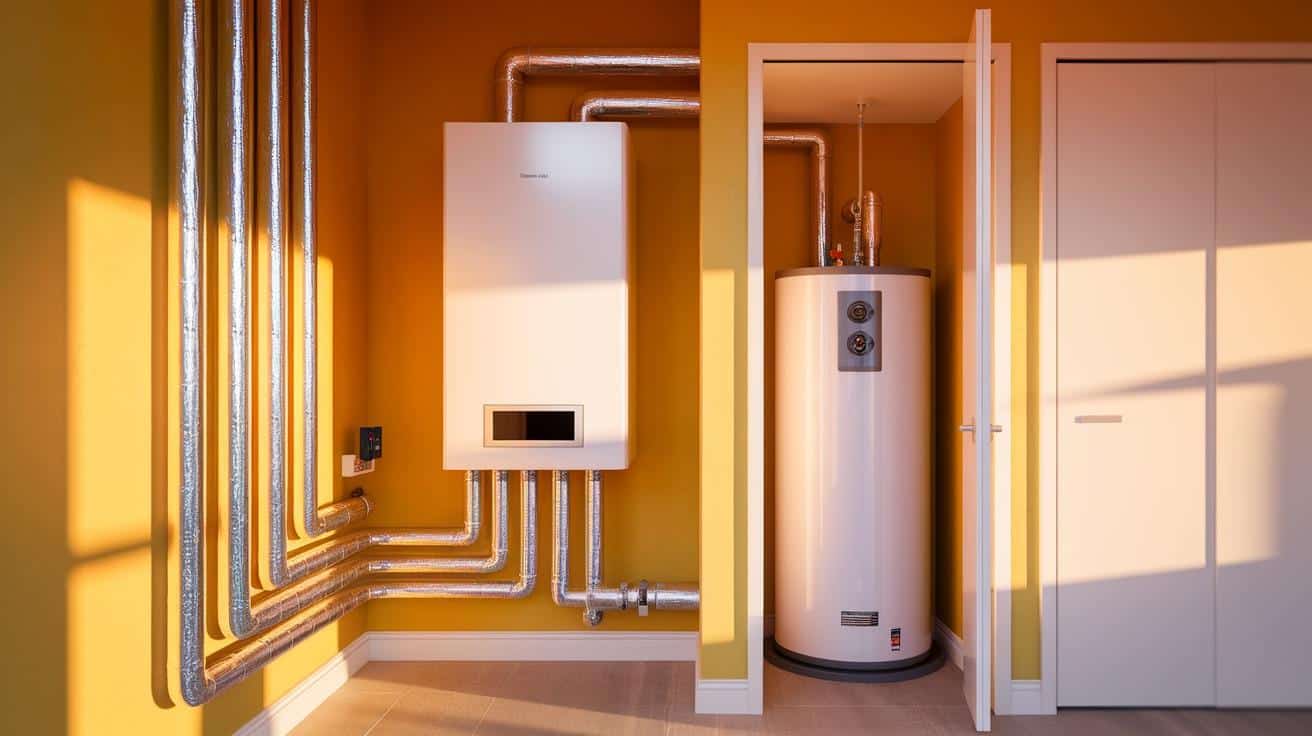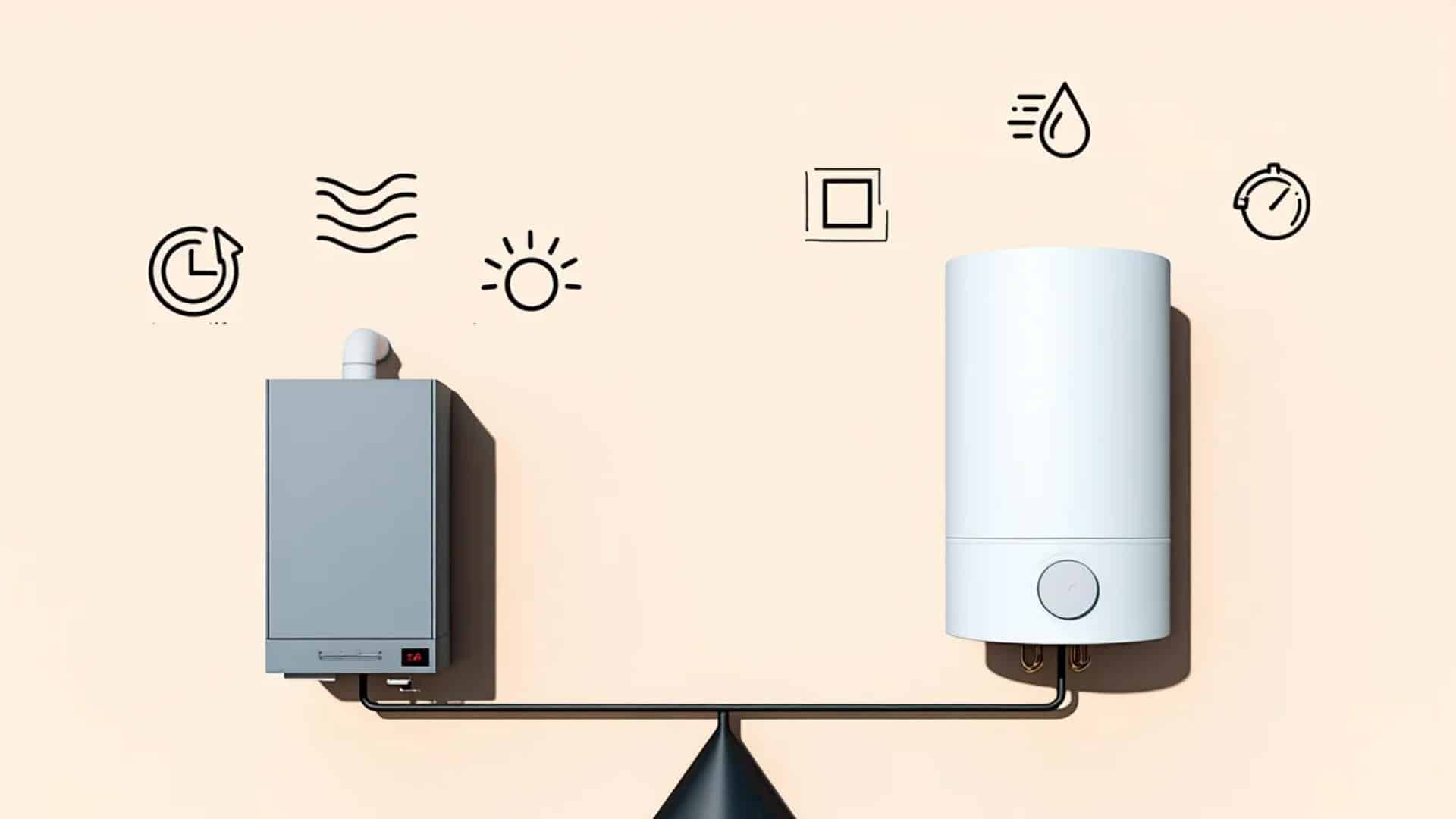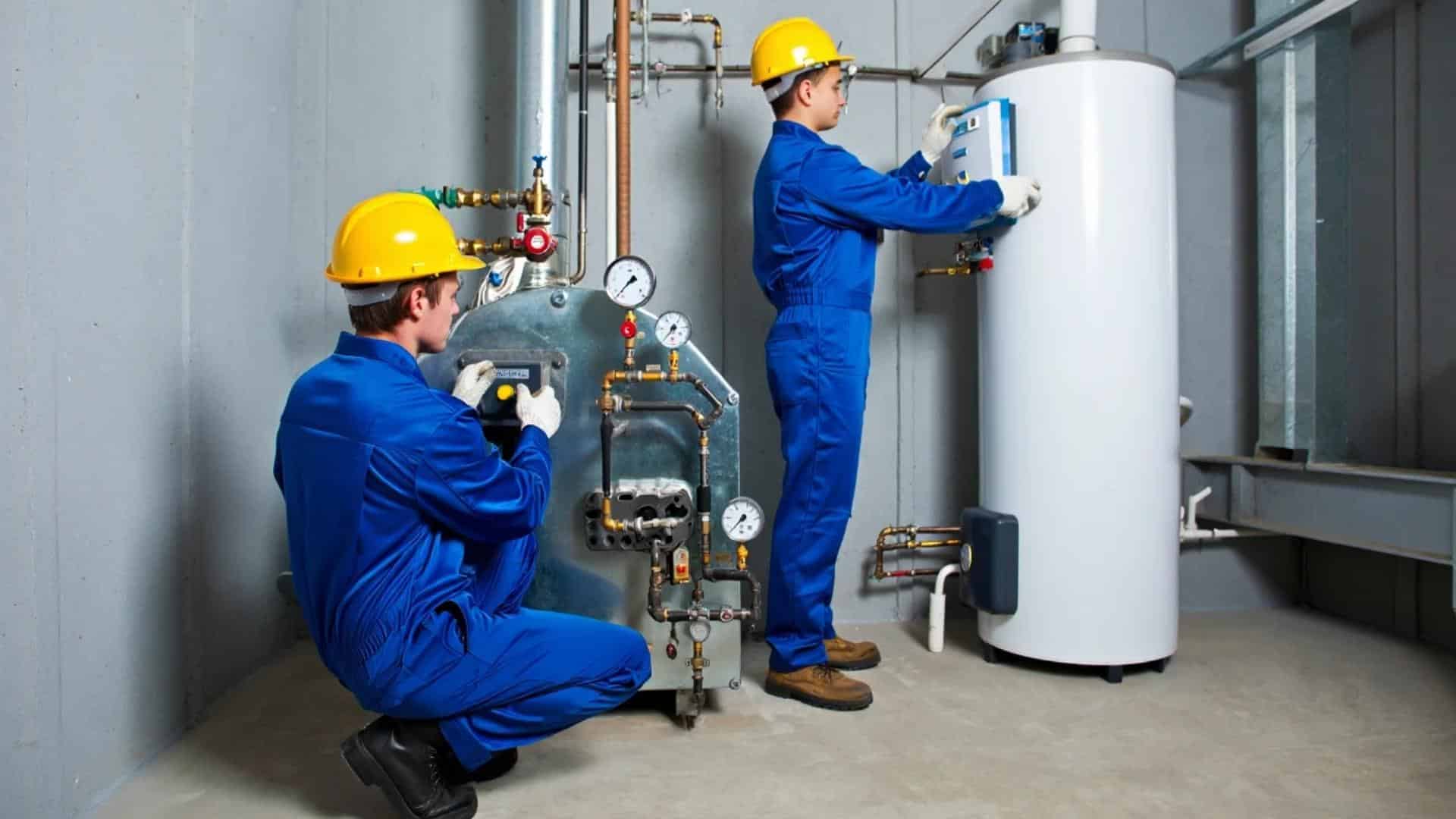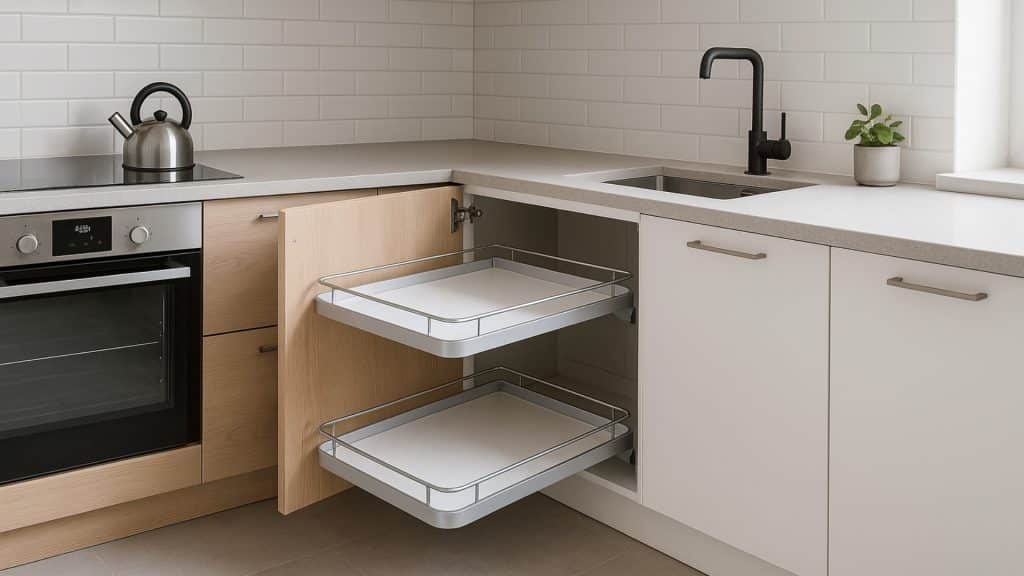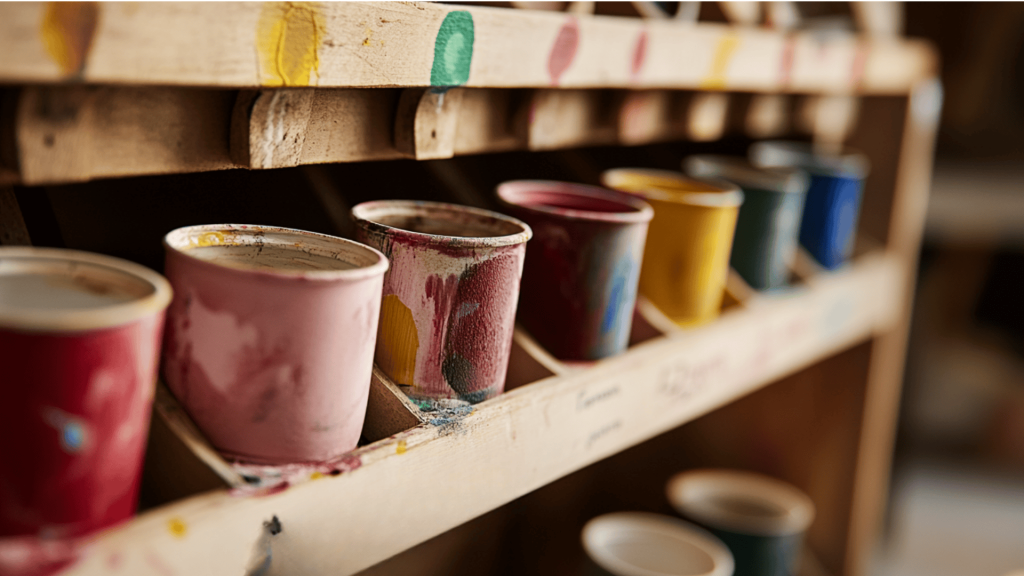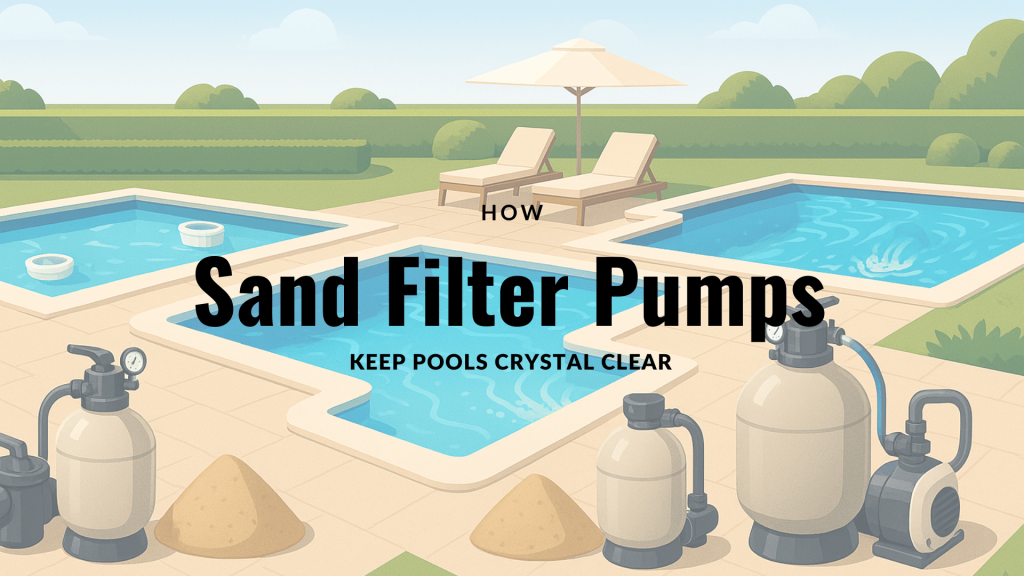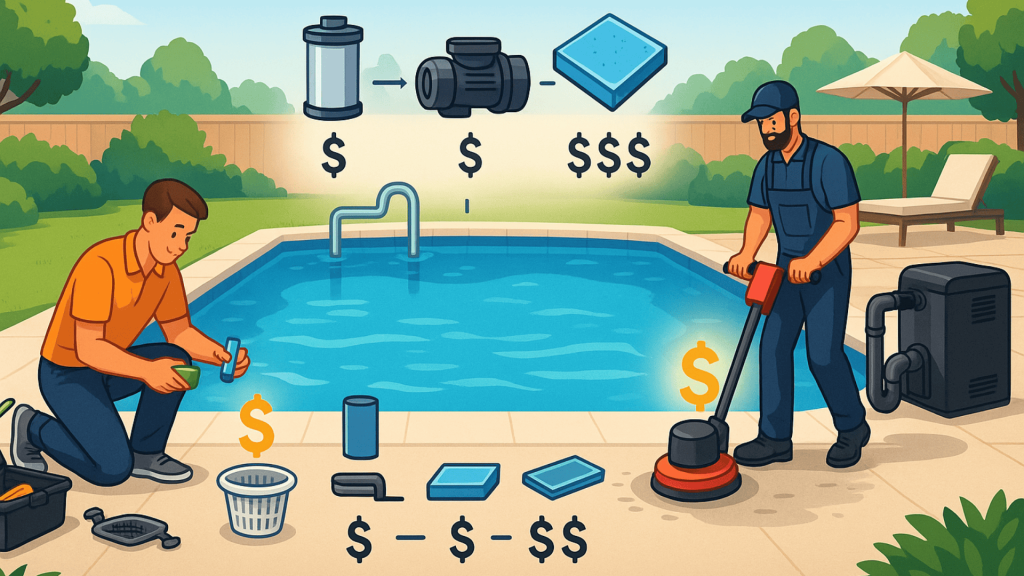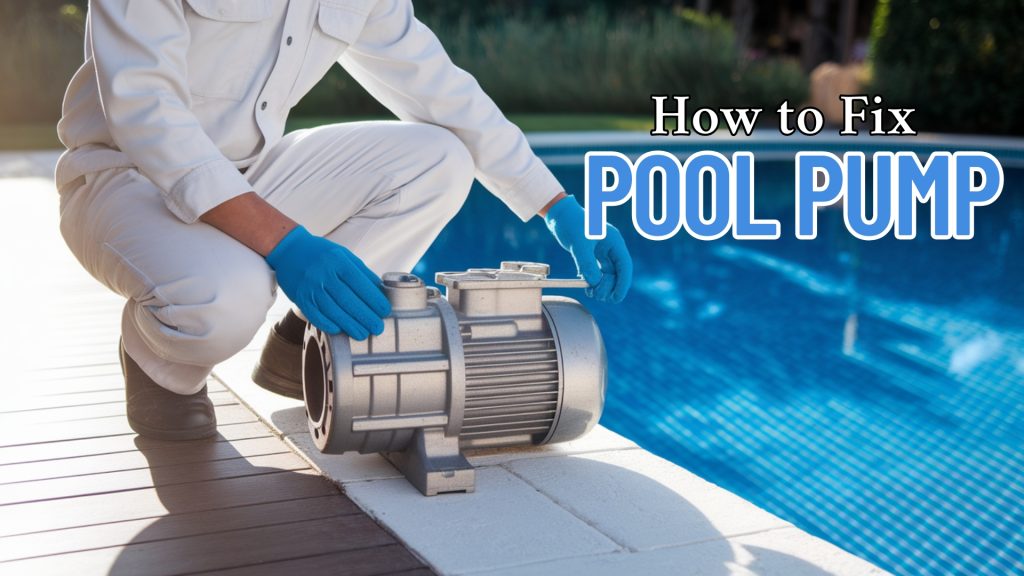Confused between a boiler and a water heater?
Picking the wrong one could cost you thousands in repairs or energy bills.
Don’t worry, we’ve got you covered.
We have compared both systems on their key differences, from installation costs to their actual purpose, to help you make a clear choice.
Whether you live in a small apartment in Phoenix or a large house in Minnesota?
Your location and home size affect which system you need.
Understanding these systems will save you money and prevent future headaches.
Both serve different purposes in your home.
One heats your entire house while the other provides hot water for daily use.
Before proceeding to the comparison, let’s first discuss what they are.
What’s the Difference Between a Boiler and a Water Heater?
A boiler heats water and sends it through pipes to warm your entire home.
It uses steam or hot water to heat radiators, baseboard heaters, or radiant floor systems.
Boilers can run on gas, oil, or electricity.
They’re popular in colder regions where whole-house heating is essential.
A water heater only provides hot water for your taps, showers, and appliances.
It stores heated water in a tank or heats water instantly as needed.
Water heaters don’t heat the air or rooms in your home.
They focus solely on supplying hot water for daily activities, such as bathing, cooking, and cleaning dishes.
Both systems use different methods to heat water.
Boilers distribute heated water throughout your home for warmth.
Water heaters keep hot water ready for household use.
Boilers may be combi, conventional, or system-based; water heaters can be tank-style or tankless.
With the basics out of the way, it’s time to examine how these systems truly differ.
Boiler vs Water Heater: A Feature-by-Feature Breakdown
We’ll discuss the key differences between these systems, helping you make an informed choice between them.
Understanding these differences will guide your decision based on your home’s specific needs.
1. Function and Purpose
Boilers serve as the primary heating system in your home.
They warm your entire house through radiators or floor heating.
Water heaters only provide hot water for bathrooms, kitchens, and laundry.
You can’t heat rooms with a water heater alone.
2. Heating Method
Boilers heat water and circulate it through pipes to radiators or heating systems.
The heated water or steam warms your rooms.
Water heaters store hot water in tanks or heat it instantly when you turn on taps.
3. Installation and Space Needs
Boilers need complex pipe networks throughout your home.
They require more space and professional installation.
Water heaters need less space and simpler connections.
Tank water heaters fit in basements or closets easily.
4. Maintenance and Lifespan
Boilers last 15-30 years with proper care.
They need annual inspections and regular maintenance.
Water heaters last 8-12 years typically.
Both systems need professional servicing, but boilers require more complex maintenance work.
5. Cost Comparison
Boilers cost $3,000-$8,000 for installation.
Water heaters cost $800-$3,000, depending on type.
Boilers have higher upfront costs, but they can help reduce heating bills.
Water heaters have lower initial costs but higher ongoing energy expenses.
6. Energy Efficiency & Environmental Effect
Modern boilers typically achieve efficiency ratings of 90-95%.
They can utilize renewable energy sources, such as solar power.
Water heaters typically achieve an efficiency of 60-80%.
High-efficiency models reduce energy waste and lower utility bills for both systems.
Quick Summary: Boiler vs Water Heater
Here is a quick summary of both systems, in a tabular form, for easy reading.
Understanding these differences will inform your decision for your home’s specific needs.
| Aspect | Boiler | Water Heater |
|---|---|---|
| Function | Heats the entire home | Provides hot water only |
| Installation Cost | $3,000-$8,000 | $800-$3,000 |
| Lifespan | 15-30 years | 8-12 years |
| Space Needed | Large, complex piping | Compact, simple setup |
| Energy Efficiency | 90-95% | 60-80% |
| Maintenance | High annual inspections | Moderate, periodic checks |
Now you know the differences between each of them, let’s discuss them a bit more to help you make a clear choice.
Pros and Cons of Each System
Understanding the advantages and disadvantages of both systems will help you make a better decision.
Each system has unique benefits and drawbacks that affect your home comfort and budget.
| Feature | Boiler Pros | Boiler Cons | Water Heater Pros | Water Heater Cons |
|---|---|---|---|---|
| Efficiency | Heats the entire home efficiently | Slower to heat up | Quick hot water supply | Only provides hot water |
| Lifespan | Long lifespan (15–30 years) | Expensive repairs | Lower upfront costs | Shorter lifespan (8–12 years) |
| Operation | Quiet operation | Requires more space | Compact size | Limited hot water capacity |
| Performance | Even heat distribution | High installation costs | Simple installation | Higher energy bills |
| Flexibility | Works with multiple heat sources | Complex maintenance needs | Easy maintenance | Frequent replacements needed |
These factors play a major role in determining which system fits your needs best.
Consider these points carefully before making your final choice.
Boiler or Water Heater: How to Decide for Your Home
You know about the differences, their terms, and pros and cons.
Now it’s time to select the right system for your home.
Consider factors such as climate, home size, family needs, and budget before making your decision.
Ask yourself questions like these:
- Do you live in a cold climate where whole-house heating is essential throughout the year?
- How many people live in your home, and what are your hot water usage patterns?
- What’s your budget for both installation costs and ongoing energy expenses?
- Do you have adequate space for complex piping systems or prefer compact solutions?
- Are you planning to stay in your current home in the long term or move soon?
- What energy sources are available and affordable in your area?
Answering these questions honestly can help you make an informed decision and save money while being smart.
Your specific needs and circumstances will determine which system provides the best value for your home.
Maintenance Tips for Long-Term Performance
Now that you have made your choice, here are some maintenance tips to help increase the longevity of your boiler or water heater.
Regular maintenance keeps both systems running efficiently and prevents costly breakdowns.
For Boilers:
- Schedule annual professional inspections and tune-ups
- Check water pressure and temperature settings monthly
- Bleed radiators to remove trapped air bubbles
- Keep vents and radiators clear of furniture and debris
- Monitor for leaks around pipes and connections
For Water Heaters:
- Flush the tank yearly to remove sediment buildup
- Test the pressure relief valve every six months
- Check and replace the anode rod every 3-5 years
- Insulate hot water pipes to reduce heat loss
- Set the temperature to 120°F (~49°C) to prevent overheating
Following these simple maintenance steps will extend the life of your system and keep energy costs low while ensuring reliable performance.
Final Thoughts
Boilers and water heaters serve different purposes in your home.
Understanding their differences is crucial to making an informed decision that suits your needs and budget.
Boilers provide whole-house heating while water heaters supply hot water for daily use.
Your choice depends on factors such as climate, home size, family needs, and available space.
Consider consulting a licensed plumber or HVAC technician if you’re unsure about the compatibility of your system with your home.
Professional advice can prevent costly mistakes and ensure proper installation.
They can assess your specific situation and recommend the best option.
Knowing the difference between boilers and water heaters can save you money, time, and hassle in the long run.
Make your choice based on facts, not on assumptions, for the best results.
Frequently Asked Questions (FAQs)
Still have questions?
Here are quick answers to common concerns homeowners have when choosing between a boiler and a water heater.
Can a Boiler Also Provide Hot Water for Taps?
Yes, combination boilers (combi boilers) can heat both your home and provide hot water for taps.
They eliminate the need for a separate water heater, making them ideal for small homes with limited space.
Do Boilers Work in Warm Climates?
Boilers are less common in warm climates where space heating isn’t essential.
A water heater is typically more practical in these areas, unless radiant floor heating or dual-purpose systems are required.
Are There Energy Rebates for Installing Efficient Systems?
Many regions offer energy rebates for installing high-efficiency boilers or tankless water heaters.
Check with your local utility provider or energy authority to learn what incentives may apply in your area.

